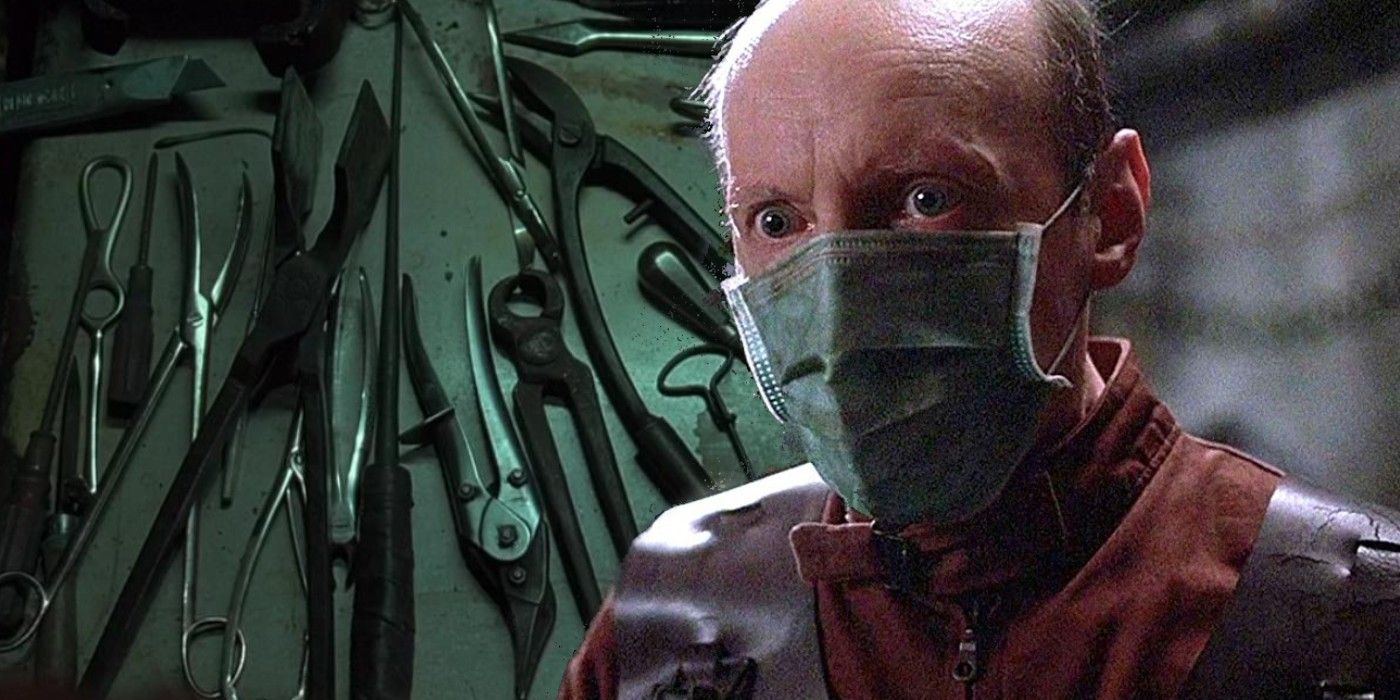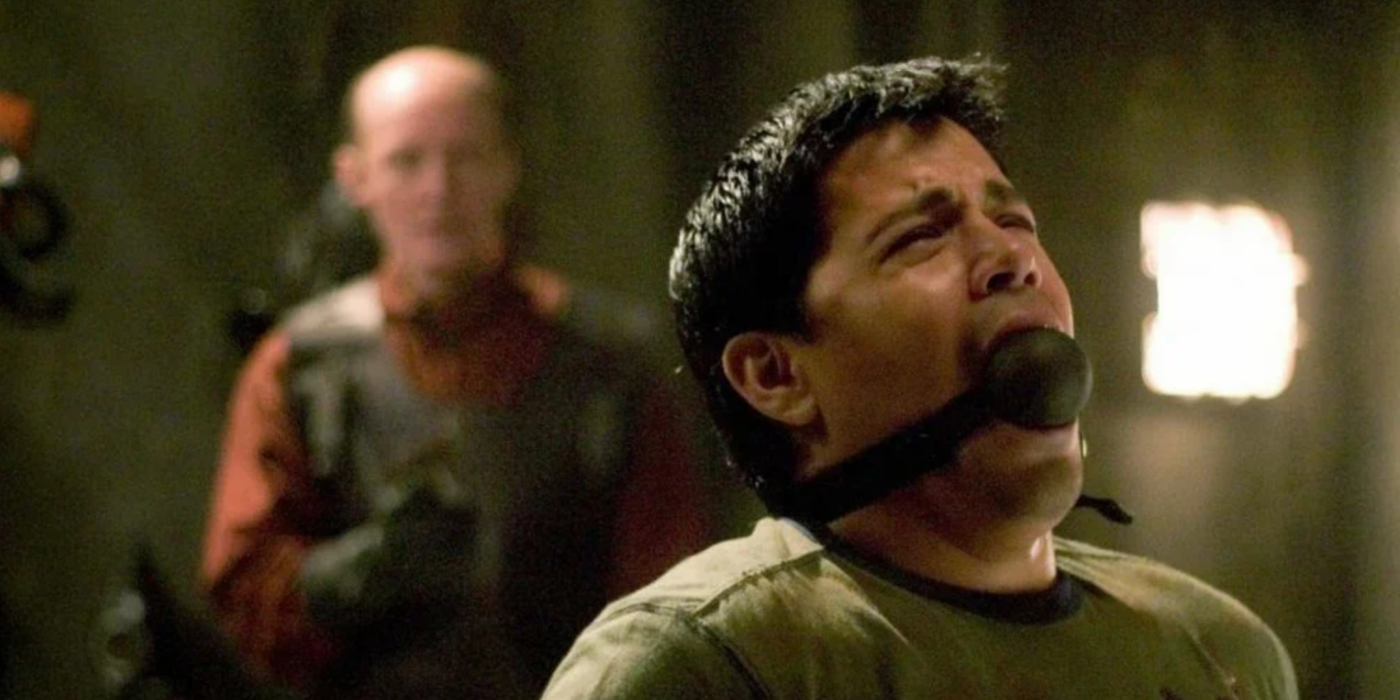Eli Roth's Hostel spawned two sequels, but it would've been much better had it remained a standalone horror movie - here's why. Written and directed by Roth, the 2005 movie gained notoriety for its abundance of torture, gore, and sexual content, which led to the creation of the subgenre known as "torture porn." The exuberant use of violence became a major trend for the director as well as the Hostel movie series. While this was a somewhat exciting new route for the horror genre to take in 2005, the subsequent sequels played too heavily into this aspect and seemed to exist only for the sake of expanding the torture porn subgenre.
Hostel follows a group of college students traveling across Europe. Once Paxton Rodriguez (Jay Hernandez) and Josh (Derek Richardson) reach Slovakia, their friend Óli (Eyþór Guðjónsson) convinces them to stay at a hostel nearby. As they enjoy the Slovakian nightlife and indulge in drinking, dancing, and sex, they have no idea that a sadistic murderer is lurking nearby. With their trip transforming from alcohol-drenched celebrations to an all-out blood bath, they must fight for their lives. Paxton is the only one to survive, but the ending of Hostel alludes to the horrors before coming to a clean-cut conclusion. Except, Hostel: Part II makes it evident the franchise felt there was unfinished - and unnecessary - business left in Slovakia.
Similar to many of his movies, Hostel was regarded as controversial upon its release for its portrayal of Slovakia as an underdeveloped and horrid place. The controversy surrounding Eli Roth's work has never stopped him from doing his job. In fact, he went on to make an even more controversial movie titled The Green Inferno in 2013. While most of his movies are standalone, like The Green Inferno and Cabin Fever, Hostel became a trilogy. Sometimes this can bode well for horror movies, but in the case of Roth's franchise, it took away from the original movie's creativity and story.
Hostel had a clear storyline about survival. Its sole purpose was to follow Paxton until the very end of the movie where he would become the sole survivor of the Slovakian hostel that became the setting for his friends' murders. In a further bit of cathartic resolution, Paxton even kills one of the main sadists that assisted in bringing them to the location. Hostel's ending didn't allow for or require a sequel, but director Eli Roth made it happen, anyway. The sequel premiered in 2007 with more female protagonists than the previous installment, which generally treated women simply as sexual objects. Roth stated that this was a way of upping the horrors of the Hostel movie series by further playing into the sexually explicit nature of the torture porn subgenre.
With every new addition to Roth's repertoire, the director attempts to add more guts, gore, carnage, controversy, and nudity. It has become such a common motif of his works that it is now an expectation. While his standalone movies such as Cabin Fever do it in a concise and purposeful way, the expansion of a torture porn movie like Hostel into a trilogy resulted in a convoluted mess. The storylines don't make much sense and solely serve the purpose of compacting as much sadistic torture as possible into an hour and a half, one of the reasons gory horror movies rarely have the impact they used to. Roth did not direct or write Hostel: Part III, which surprisingly has a higher rating than the original. This is perhaps because it could have been its own standalone movie as it is completely detached from both the sequel and the original.
Ultimately, Hostel provided a complete storyline that didn't necessitate a sequel and, furthermore, didn't even leave room for one. Hostel: Part II and Hostel: Part III only served the purpose of upping the ante in the newly formed torture porn subgenre. They lacked overall substance and story. Hostel should have been left as a great standalone movie, especially considering how unremarkable the sequels are in comparison.


